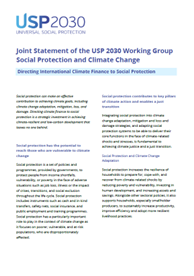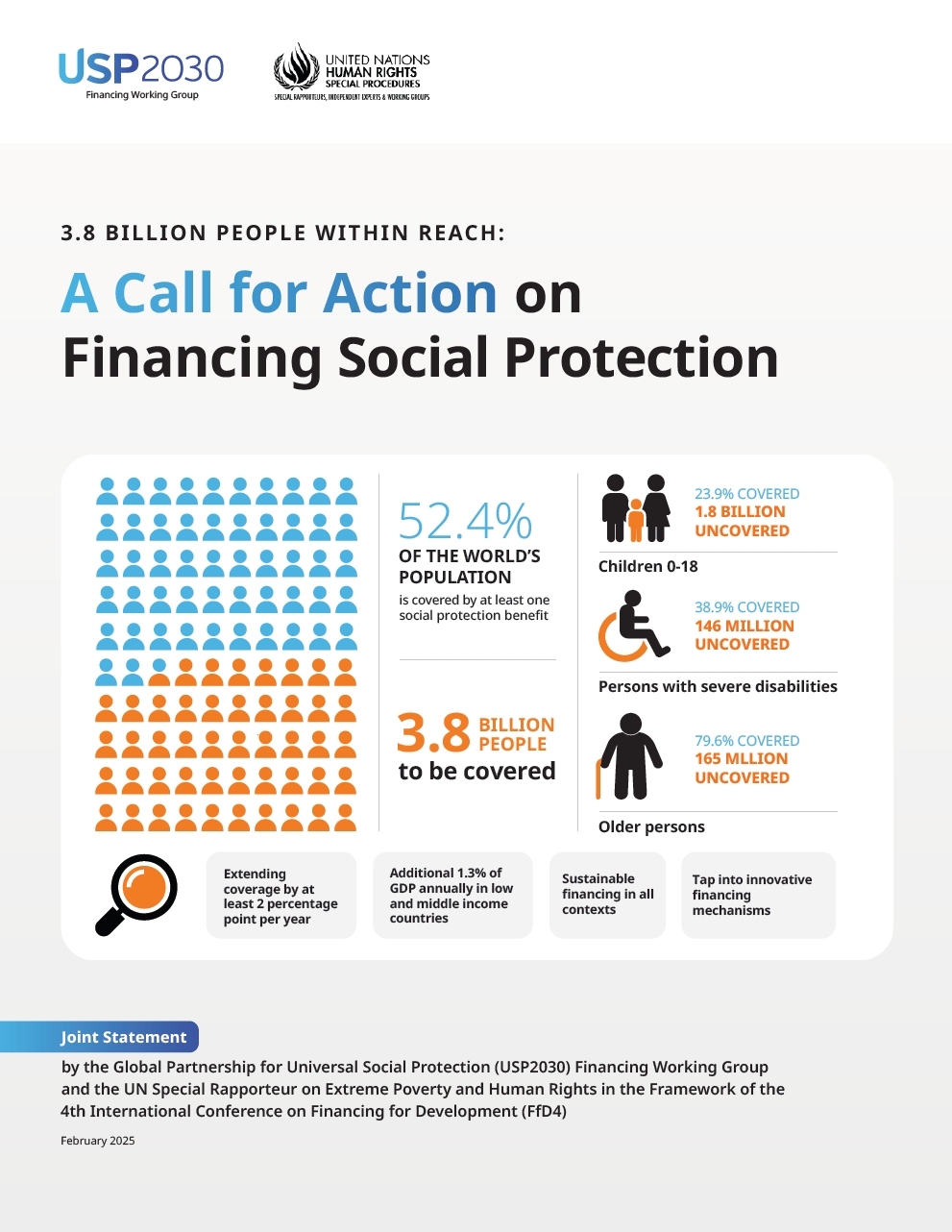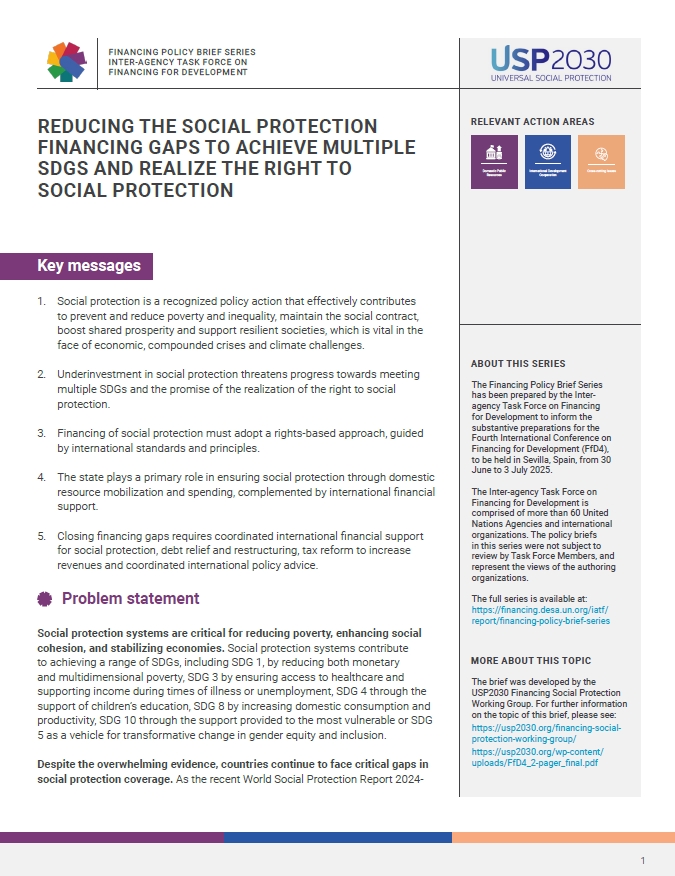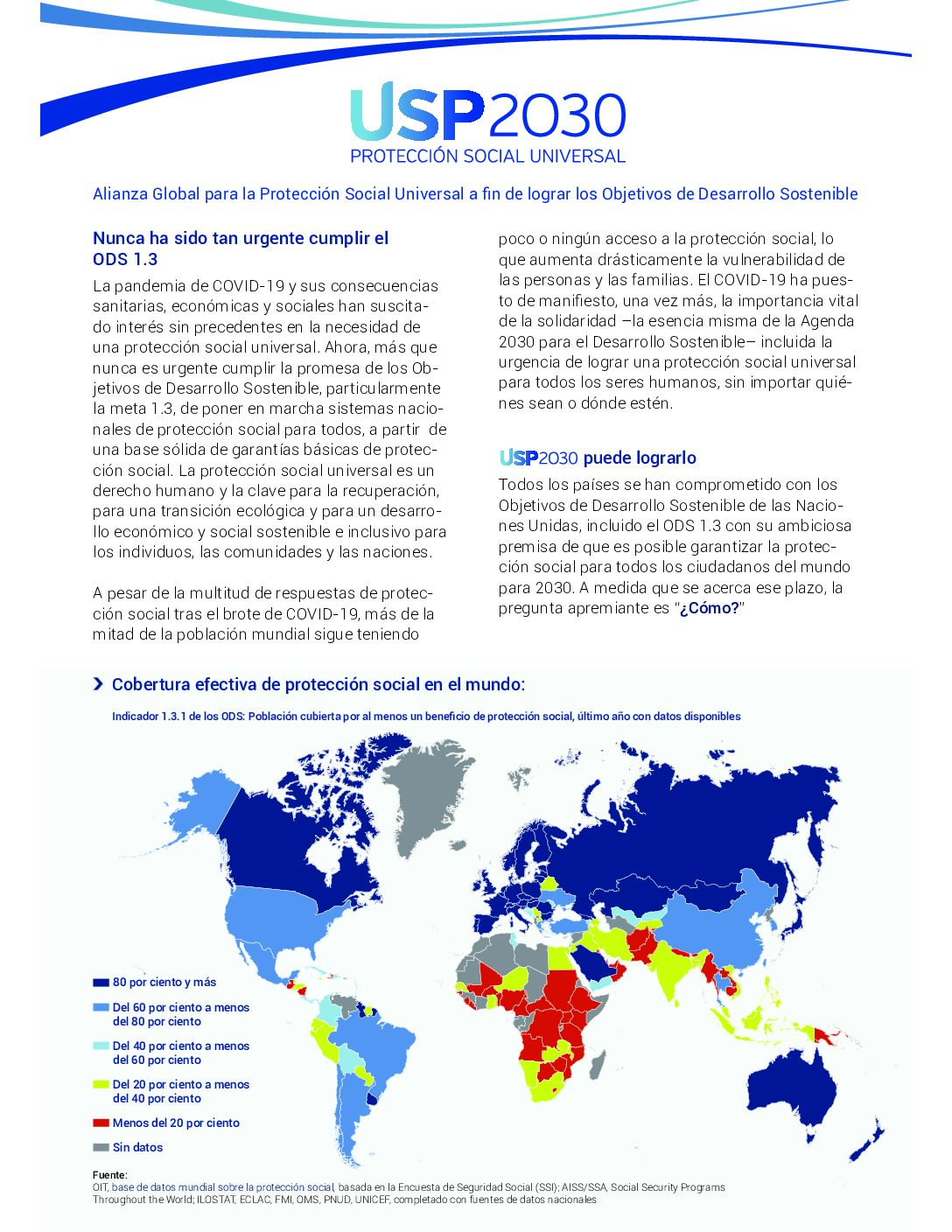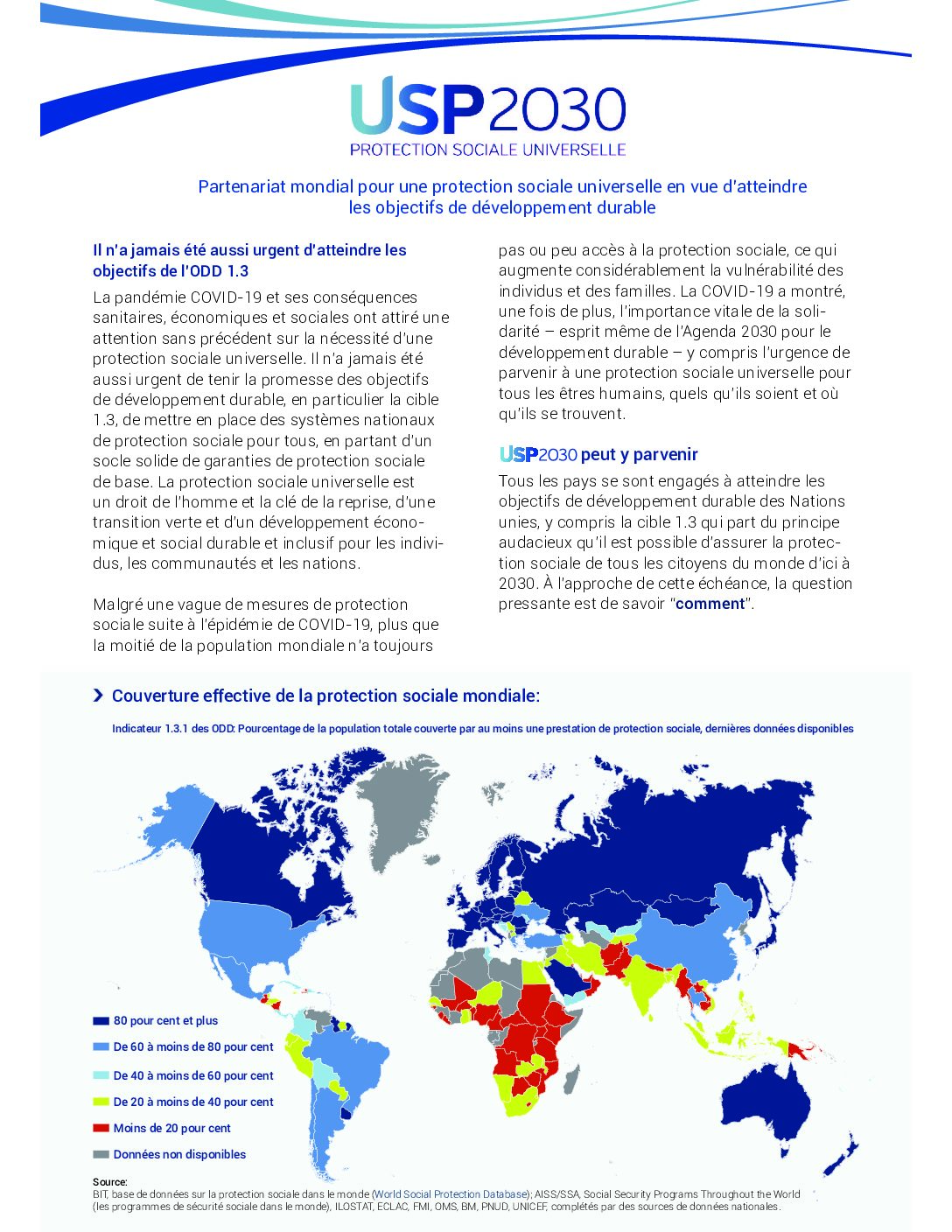RECENT PUBLICATIONS
USP2030 Working Group on SP & Climate Change
Integrating social protection in Nationally Determined Contributions (NDCs)
USP2030 Working Group on SP & Climate Change
USP2030 Financing Working Group
3.8 Billion within Reach: A Call for Action on
Financing Social Protection
Financing Policy Brief Series – Interagency Task Force for Development
Reducing the Social Protection Financing Gaps to Achieve Multiple SDGs and Realize the Right to Social Protection
USP2030 BLOG
PARTNERS’ RESOURCES
FAO: Social Protection Framework
Germany: A Systems Perspective on Universal Social Protection, BMZ, January 2019 | GIZ Global Alliances for Social Protection
ILO: ILO Flagship programme | World Social Protection Report 2024-2026
UNICEF: Global social protection programme framework
WFP: Strategy for Support to Social Protection – 2021
World Bank: Charting a Course Towards Universal Social Protection: Resilience, Equity, and Opportunity for All | World Development Report 2019


